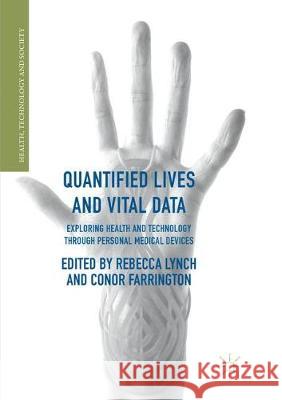Quantified Lives and Vital Data: Exploring Health and Technology Through Personal Medical Devices » książka
topmenu
Quantified Lives and Vital Data: Exploring Health and Technology Through Personal Medical Devices
ISBN-13: 9781349957699 / Angielski / Miękka / 2018 / 298 str.
Kategorie:
Kategorie BISAC:
Wydawca:
Palgrave MacMillan
Seria wydawnicza:
Język:
Angielski
ISBN-13:
9781349957699
Rok wydania:
2018
Wydanie:
Softcover Repri
Ilość stron:
298
Waga:
0.41 kg
Wymiary:
21.01 x 15.09 x 1.8
Oprawa:
Miękka
Wolumenów:
01











